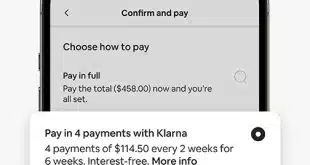A prominent merchant trade group on Thursday began running a TV commercial that uses Visa Inc.’s sponsorship of the FIFA World Cup to decry credit card acceptance fees and advocate for a bill backed by Sen. Richard Durbin, D-Ill., that would regulate those costs.
The 30-second commercial, which lays heavy emphasis on how Visa Inc. and Mastercard Inc. frustrate “free-market competition” by setting credit card interchange rates, shows a player kicking a soccer ball toward a net to score a goal, only to have the ball blocked by an oversized credit card. The ad is sponsored by the National Association of Convenience Stores and backed by the Merchants Payments Coalition, an advocacy group that has long lobbied against what it views as non-competitive setting of credit card acceptance rates by the two global networks.
“Free-market competition. Main Street businesses do it every day and consumers are the winners,” a narrator says during the commercial. “But what happens when we let credit card companies play by different rules? Americans pay the highest swipe fees in the world, up to 3 percent or more, nearly $1,000 a year in unfair hidden fees for families. That’s why Main Street businesses and consumers support the Credit Card Competition Act. It takes free market competition to have fair fees.”

The commercial is running in the Washington, D.C., market and in “various targeted markets” for the time being, says a spokesman for the MPC, and is appearing on both cable and broadcast channels. It “hasn’t been decided yet” whether the ad will run during the World Cup games themselves, the spokesman adds. The games, which are set in Doha, Qatar, began Sunday and are set to run through Dec. 18.
Visa last week announced it would use its World Cup sponsorship to showcase a number of payment technologies, including contactless transactions, facial recognition, and digital card issuance. Details were not immediately available regarding how much Visa is spending on the sponsorship. It has been an “official payments technology partner” of the FIFA World Cup since 2007.
The Credit Card Competition Act, introduced in July in the Senate, is co-sponsored by Sen. Roger Marshall, R-Kan., as well as Durbin, whose similar legislation to control debit card acceptance costs became law 10 years ago as part of the massive Dodd-Frank Act. The credit card bill would require that all banks with $100 billion or more in assets offer acquirers a choice of at least two unaffiliated networks for transaction routing. There are 32 banks in the United States that meet that asset threshold, according to the Federal Reserve. The bill in September was introduced in the House of Representatives, with Peter Welch, D-Vt., and Lance Gooden, R-Texas, backing it.
Critics of the proposed legislation argue the CCCA would do nothing to enhance competition in credit card acceptance costs while causing a good deal of mischief. Some, indeed, see the NACS commercial as ironic. “MPC member NACS’s ad saying, ‘It takes free-market competition to have fair fees,’ is rich,” argue Eric Grover, a Minden, Nev.-based payments consultant. “The merchant lobby is hardly an apostle of free-market competition. When free-market competition produces fees that some merchants don’t like, they are the first to holler for government intervention to give them prices that they can’t obtain in [a] free market.”
So-called credit card interchange rates are established by the card networks and are paid by transaction acquirers, which pass the costs on to the merchants they process for, typically with a markup.






